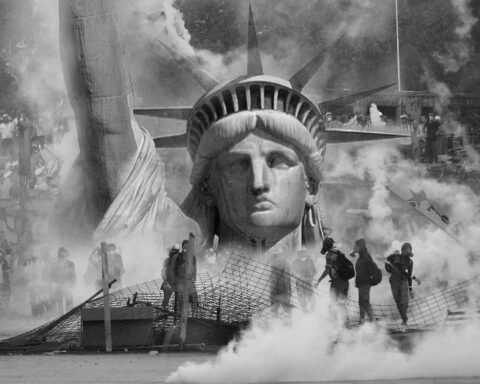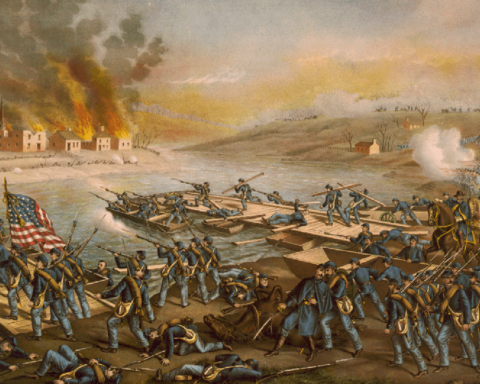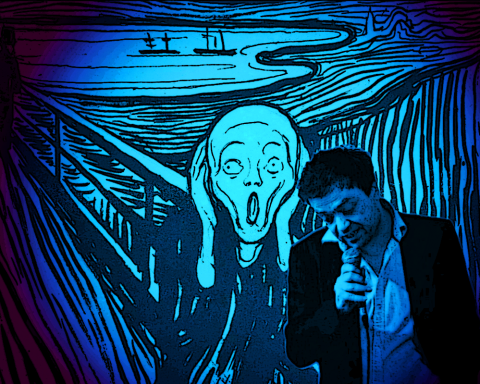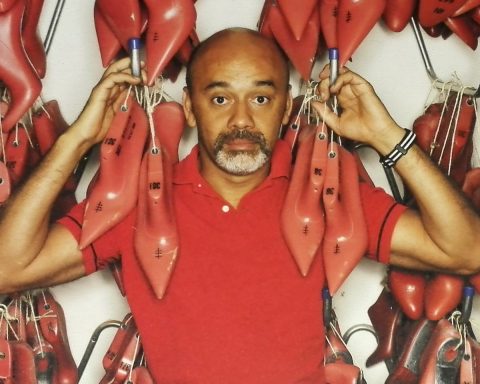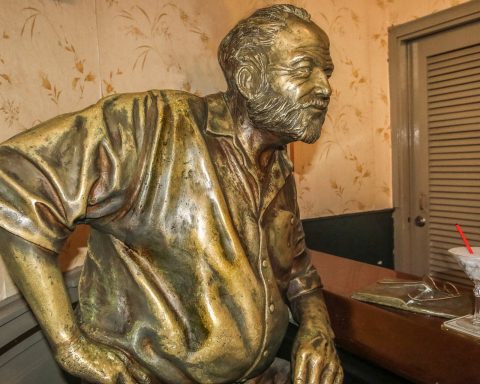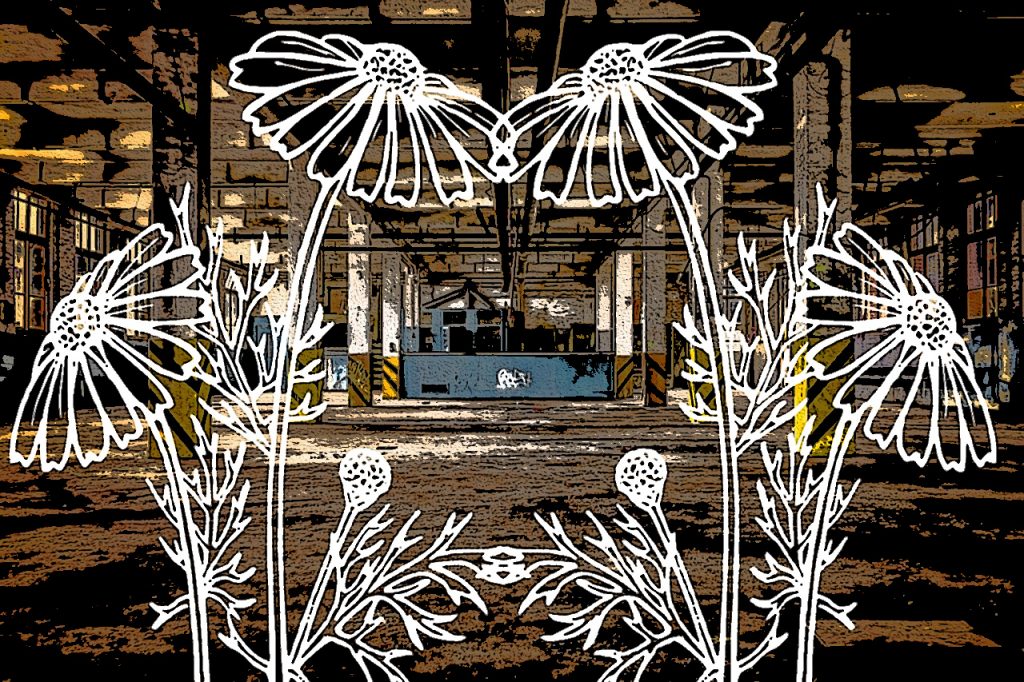
LITERATURE. A Swedish emigrant travels back to Sweden to work on a book and ends up writing another book – about pornography, poetry, foreignness and Lars Norén. Born in Lund, Sweden, Johannes Göransson now lives in South Bend, Indiana, where he teaches at the University of Notre Dame. He’s the author of seven books, including The Sugar Book and Transgressive Circulations: Essays on Translation, and the translator of many Swedish poets, including Aase Berg, Ann Jäderlund and Helena Boberg. POETRY AGAINST ALL is forthcoming this spring from Tarpaulin Sky Press.
from POETRY AGAINST ALL (a diary)
The photographs of Woodman and Bellmer both take place in the aftermath. In a private space, the photograph both registers the crime and somehow is the crime, the poison. It taints the space by turning it into Art, images, corpses. Art as murder mysteries that are never solved. The corpse makes the setting baroque. The atmosphere is always overwhelming.
What I love about murder mysteries are the crime scenes. All those disparate objects brought together in one scene is like a surrealist assemblage. They have a mysterious atmosphere, in which the killer lurks. To solve the crime means to create a narrative that makes sense of the assemblage, removes its mystery. The narrative clears the atmosphere, turns the killer into a person who can be prosecuted, establishes the guilt (in the interiority of the killer or in wider political conflict) through causality. I’m not interested in guilt. That’s about balancing the accounts. Balancing the account is the opposite of art. Art should be ravishing images.
Henning Mankell’s Wallander mysteries have the most evocative crime scenes: swans set on fire, a girl sets herself on fire in a rape field, a group of dead young people dressed in 17th century garb. Wallander is capable of finding the killers because he loves opera. Because he’s an alcoholic, a diabetic, coming apart. His body is vulnerable to art and intoxication, it is breaking down.
Wallander’s father is similar to Wallander: he’s tainted by art. He’s an artist who keeps repeating the same painting – an idiot Warhol (or the idiot Warhol always liked to pretend he was) – as if he had no memory. By the end of the series the father is dead, the daughter has taken Wallander’s place as detective and Wallander has Alzheimer’s, the narrative disappearing again. The parasite of art has used up Wallander – the man and the series.
It’s like the protagonist in Stalker: art’s forbidden zone has turned his hair gray in patches and has contaminated his sperms, causing his only child to be born deformed but magical. The relationship between guide, detective and poet evokes for me someone who works with atmospheres and mysteries. It’s why the main character in The Sugar Book is all of these.
The atmosphere is the killer. That’s why the detective only catches glimpses of the killer at first. The killer is not yet a person. The detective has to use narrative make a whole person out of the glimpses, the atmosphere, so that he can turn art into a crime that can be tried in court.
Never balance the accounts.
The logic of The Sugar Book has to be contaminatory because the foreigner has no interiority and in the Los Angeles of The Sugar Book we are all foreigners. We go to the movies to find a home but it’s not there anymore. That’s what the movies tell us. They lie. It was never there. Solaris.
Foreigners make the best detectives, but they also make the best killers. They have no souls, portrayed as flat. This allows them to move in the volatility of atmosphere. This is also why the foreigner is kitsch. I take a selfie. Insects and electricity.
There is no cure for looking at images. At least that’s what they would have us believe. The degenerate porn addicts keep looking at pictures of naked bodies. An underworld of bodies and flowers: The poet must be a pornographer. No the poet must make pornography against porn.
In Distant Star by Roberto Bolano: The climax is when all the fascists go into the photography show and come out puking. But we don’t see the photographs. We just see the effect, the vomiting. The exhibit is like a black hole in the middle of the book: it both explains everything that happens and refused to actually show anything. Of course the photographer is a poet. The character is a poet-as-pornographer. But Bolano’s book – with its black room at the center of the book, a center that cannot be seen but whose effects is vomiting – is a work of parapornography: the pornography vomits itself.
The word “tusenskönor”: The correct translation is “daisies.” Daisies. Ann Jäderlund would never write a poem with “daisies” in it. Her poems are teeming with thousandbeauties.
The words “baroque” and “ruins,” which play such a central role to Friedlander’s notion of Nazi kitsch, are replayed in all the discussions in the US right now about “ruin porn.” Ravishing pictures of luxurious ruins: Is it the fact that the ruins are mostly formerly wealthy buildings that makes the ruin porn luxurious, or is it the ruination process, the debasing process that is the ultimate luxury?
These ruin-porn buildings always strike me as toxic spaces. The toxicity of art.
With a stunning frequency, ruin porn is condemned in xenophobic terms. The photographers are accused of being foreigners, or worse, foreign tourists. I’m reading a discussion right now, where one accused photographer points out that he’s actually from Detroit. A critic immediately replies: “No, if you were really from Detroit you wouldn’t aestheticize our economic collapse.”
Not only is it only foreigners who make “porn,” making porn seems to make you into a foreigner.
That time D. [an “experimental writer” from Bay Area] attacked me for turning her book into pornography by reading it retinally and failing to see it as a very ethical “critique” of pornography.
Later she forbade me from writing about her writing because I come from “some place different.” I’m not from the Bay Area. I’m from some place else. A foreigner, I made pornography out of even her moral critique. I ruined her sense of agency. I made kitsch out of her experimental art. As Haryette Mullen might have put it, I was an “unimagined reader.” I perverted her book. She had throw me out of her Republic (because I was not a member already). She wanted to denaturalize me.
Like when S. [critic and professor] said I was “tossing bombs” into US poetry. Being sensationalistic. Being a flat foreigner. Being violence.
Tarkovsky’s Stalker must be one of the origins of “ruin porn.” The images are so beautiful – so “ravishing” – they verge on kitsch. The snow falling indoors, the reliquary of discarded objects under water. The imagery is so gorgeous, iconophilic. I just want to look and look.
You can’t long for a place that still exists. The worst is to be in the place and yet to long for it. This paradox transforms me into a ghost. No, I was already a ghost. Since I was 13 years old I’ve been a ghost. And America has tried to exorcise me. But not as hard as I’ve tried. I’m trying right now. It’s finally working.
How strange it is to be home. Seeing this place where I grew up is oddly similar to the sensation of going to Korea. The feeling of returning home and the feeling of being some place utterly foreign, belonging and strangeness: How can these feelings be so similar? Something between joy and melancholia. A head-on crash with fantasies.
I want to take away all my ties to this place.
Went into town with Thomas and walked around. Had an ice cream and sat on the benches on Stortorget. Nothing has changed. It was sunny in that dusty way that smells of lilacs. To write The Sugar Book I have to become a tourist in my own home. I have to fake my own death. Disappear in order to live here again.
I have to make this book into a riddle.
I have to throw away the key.
In Paul Celan’s “Paris Memories,” the tourists can’t breathe until they die.
The Sacrifice, is a vacation movie, a tourist film. It could be read autobiographically. Tarkovsky is on vacation in Bergman’s Sweden, when the Soviet Union returns with nuclear attack – return of the repressed – to tear apart the fabric of his new life. Tarkovsky had of course abandoned his family in the Soviet Union in order to dedicate himself to his melancholic madness, his art. But Sweden is contaminated by his Russian nostalgia. It’s like his nostalgia brings about the end of the world.
The apartment I rent in Malmö has a beautiful terrace but it smells like sperm.
Everyone in Sweden is talking about Lars Norén’s diaries, the second installment of which were just published. Most reviewers are negative. In Aftonbladet, Göran Greider manages to accuse Norén of all my favorite charges: Norén is like a spectator in a “spectator democracy”; he’s like an Internet troll; if Norén was the head of a country, he’d be a merciless “despot,” annihilating cities at random; he’s like a mirror; he writes “a kind of pornography for the middle class”; he’s “like an animal waiting to be dissected”; and, of course, dead, a corpse. But on the other hands, Greider acknowledges: “when he doesn’t hate, his language is the most beautiful I know.” Somehow “the most beautiful” can so easily turn into dictatorships, bleeding corpses, animals. Kitsch and its deathy force is all over Greider’s thinking. He might as well have called Norén “debased Romanticism.”
Music about sharp objects. A cutter’s music: I’m imagining that I’m writing this in a hospital. I’m always picturing myself in hospitals when I write.
I got an email from Sara. She wanted me to meet the head of Teater Mutation. The three of us met on the square. Went to a bar. When I got back to the apartment I started to write my own captivity narrative, giving the main character a son he keeps in a separate room. I think about Herzog’s “Every Man for Himself and God Against All.” Wrote about a Kaspar Hauser situation. Everything that America touches turns into torture. I’m an American. Later at night I met up with Sara again. Different bar. Talked until late. She lent me her copy of Norén’s diaries. A big black brick. Like a minimalist work of art and/or a gravemarker.
I think about Hawthorne’s brilliant murder story “Rappaccini’s Daughter”: Raised in the lethal garden, the daughter is exposed to so much poison that she becomes immune to the poison, but it also makes her poisonous. I think it’s an allegory about Art. I’m writing a poison book about America: Foxglove, hemlock, thousandbeauties.
The Rappaccini’s Daughter Complex: I write with poisons. I expose myself to their harm. It’s how I stay alive in here. It’s why I’ve returned to the garden.
Joyelle wrote. Majken is babbling compulsively. The compulsion must be the pleasure of language. Something akin to vandalism. Language scratched the public sphere. The origins of expression is obscenity. My daughter is obscene in her language. Children are obscene. Poetry is obscene. But there are those who want to maintain the illusion that it is good for us.
Reading Sara’s copy of Norén’s diary. I’m surprised to discover how much of it consists of shopping lists. Like a caricature of the bourgeoisie, he keeps buying fancy clothing, it seems so that he will be forced to remain incredibly productive, writing as many as three plays at the same time. It’s as if he’s using debt as a kind of currency, a kind of meaning, a reason to keep writing plays.
The sugar is leading to an all-out assault: “god against all.” The violence is like an atmospheric violence, a plague that strikes everyone: Bodies strewn everywhere.
“To cut forth the essential” (Sept 2000): From the beginning of Norén’s diary there’s an emphasis on “simplicity” and “cleanliness.” He’s constantly cleaning his apartment. And in his writing, he “skriver rent” [literally “writes clean”] his plays – as if revising was a matter of cleaning them up. It’s a rhetoric of abjection. While cleaning his apartment, he writes that he is “sorting” out the junk from the stuff he wants to save. If he’s “sorting out” his writing, what are the parts he wants to keep and what are the parts he want to get rid of? Or is the diary the ultimately “clean” text: I do this, I do that. The sentences are short, often he writes without any transitions. Diary as montage of curt sentences. He wants to clean by writing, but writing produces art, ie filth.
The name Reagan marks my transition into adulthood. A counterfeiter determined my life. A cold war shaped my art. I write as if poetry was another name for Berlin.
Gertrude Stein supposedly said she went to France to be alone with the English language. I went back to Sweden to be contaminated by Swedish.
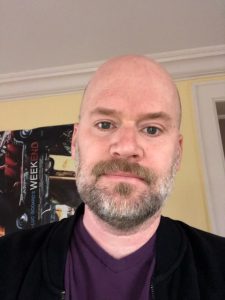
info@opulens.se


